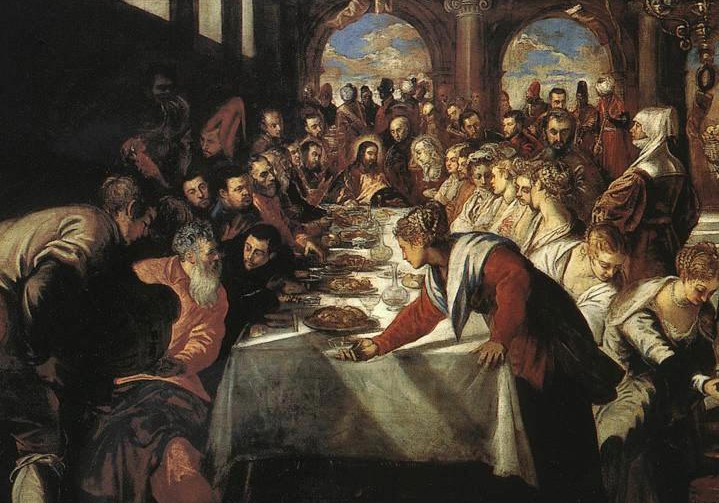
22nd Sunday in Ordinary Time C
Readings: Sirach 3:17‑18, 20, 28‑29 Hebrews 12:18‑19, 22‑24
Luke 14:1,7‑14
"God in your goodness, you have made a home for the poor." The refrain for this Sunday's psalm (Ps 68) reminds us that God's kingdom challenges and subverts the worldly values of prestige, power, wealth, and physical perfection. As followers of Jesus, we are called to imitate God who "gives a home to the forsaken" and "leads forth prisoners to prosperity" (Ps 68:7).
The reading from the Book of Sirach is a series of sayings exhorting us to be humble and give alms. Such a life is not based on a shrewd calculation of how to succeed in the world but on a truthful acknowledgment of how we stand before God. In a line omitted from our reading we are reminded, "For great is the power of God;/ by the humble he is glorified" (Sir 3:19). Recognition of our utter dependence upon God's graciousness frees us from a frantic searching "into things beyond (our) strength" and makes us generous sharers of our wealth through the giving of alms.
The second reading completes the selections from Hebrews with a striking contrast between the assembly gathered on Mount Sinai to seal the old covenant and "the assembly of the first‑born enrolled in heaven" to partake in the new covenant mediated by Jesus' blood. As the author of Hebrews loves to do, the old covenant is understood as frightening, inaccessible, and incomplete. Sinai is described as "an untouchable mountain" with "a blazing fire, and gloomy darkness and storm and trumpet blast." The Israelites were terrified when they heard God's voice speaking words, and "they begged that they be not addressed to them." In contrast, Christian believers are reminded that they have drawn near to an assembly which joyfully experiences the very presence of God. The heavenly assembly is described as "Mount Zion," "the city of the living God," "the heavenly Jerusalem," filled with "myriads of angels in festal gathering." Although they are still pilgrims in this world, Christian believers have already approached "God the judge of all," "the spirits of the just made perfect," and "Jesus, the mediator of a new covenant."
In the Gospel from Luke Jesus uses the occasion of a Sabbath meal in the home of a leading Pharisee to challenge the protocol and hypocritical pecking order of aristocratic society. To the guests, who are pushing and shoving to get the places of honor at the table, Jesus commands “go and sit in the lowest place” less they be embarrassed when “some greater dignitary” arrives and they must shamefacedly give up their seat of honor and go and sit in the lowest place. Jesus' humorous example of an embarrassing reversal of seats at a banquet is more than a piece of worldly table etiquette. He is shocking the guests into realizing that God's rule subverts their own deeply ingrained social standards, and therefore he concludes by saying, “For everyone who exalts himself shall be humbled, and he who humbles himself shall be exalted.”
Jesus' admonition to the host is even more shocking. Rather than invite as guests wealthy relatives and friends who will return the favor, the host is commanded to invite beggars and the disabled, the very ones excluded from aristocratic society and Temple worship (see Lev 21:16‑23).
In the parable which follows today's reading (Lk 14:15‑24), Jesus goes on to describe the messianic banquet as a feast where the rich invited guests exclude themselves by failing to accept the invitation. They are replaced by the poor and disabled when the angry master orders his servant, “Go out quickly into the streets and alleys of the town and bring in here the poor and the crippled, the blind and the lame.” When there is still room, he commands his servant, “Go out to the highways and hedgerows and make people come in that my home may be filled.” Those of us who assume that God values our standards of power, wealth and physical perfection would do well to listen to the master's harsh rejection of the wealthy invited guests: ". . . I tell you none of those men who were invited will taste my dinner."
No comments:
Post a Comment